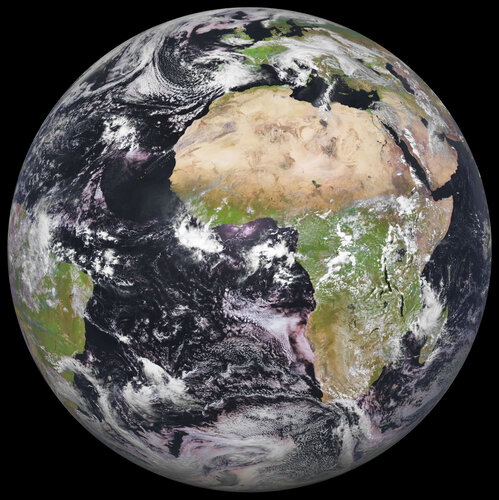
ESA and the German Aerospace Center (DLR), in collaboration with the Google Earth Engine team, have developed the World Settlement Footprint – the world’s most comprehensive dataset on human settlement. Featuring data from the Copernicus Sentinel-1 and Sentinel-2 missions, this unprecedented collection of data on human settlement will advance our understanding of urbanisation on a global scale.
9. Tibetan plateau is Earth’s ‘third pole’
The Tibetan Plateau is often referred to as the 'third pole' owing to the amount of freshwater it contains. With over 46 000 glaciers, the Tibetan Plateau holds the largest reserve of freshwater outside of the North and South Poles.
These glaciers feed the rivers that run through the region, including the Mekong, Yangtze, and Yellow River, providing a vital source of water for millions of people in China and Southeast Asia.
The Tibetan Plateau's glaciers, along with other glaciers around the world, are under threat from climate change. Rising temperatures are causing the glaciers to melt at an unprecedented rate, which could have devastating consequences for the people and ecosystems that depend on them.
New findings have found that values of ice lost from Himalayan glaciers during 2000 to 2020 were, on average, underestimated by 6.5%. This discovery has critical implications for predicting the demise of the region’s glaciers and for managing critical water resources.
10. Trees are breathers
Trees are one of the most effective tools we have to combat climate change. Forests are home to around 80% of biodiversity on land and tropical forests alone produce over 40% of the oxygen we breathe.
Covering around 30% of Earth’s land surface, we depend on forests for our survival. Forests absorb around 8 Gigatonnes a year of carbon dioxide from the atmosphere and play a crucial role in the carbon cycle and climate system.
However, climate change, forest degradation and deforestation are causing much of this stored carbon to be released back into the atmosphere. Recent research found that recovering tropical forests were only successfully combatting a quarter of the current carbon emissions and indicates the importance of preserving and restoring our tropical forests.
To better understand the role of trees in regulating our planet's carbon cycle, ESA’s upcoming mission called Biomass will use advanced radar technology to measure the amount of carbon stored in Earth's forests and other biomass, providing a more accurate assessment of carbon storage and uptake than ever before.
By monitoring changes in biomass over time, scientists will be able to assess the effectiveness of forest conservation efforts and better understand the impact of deforestation on our climate.



